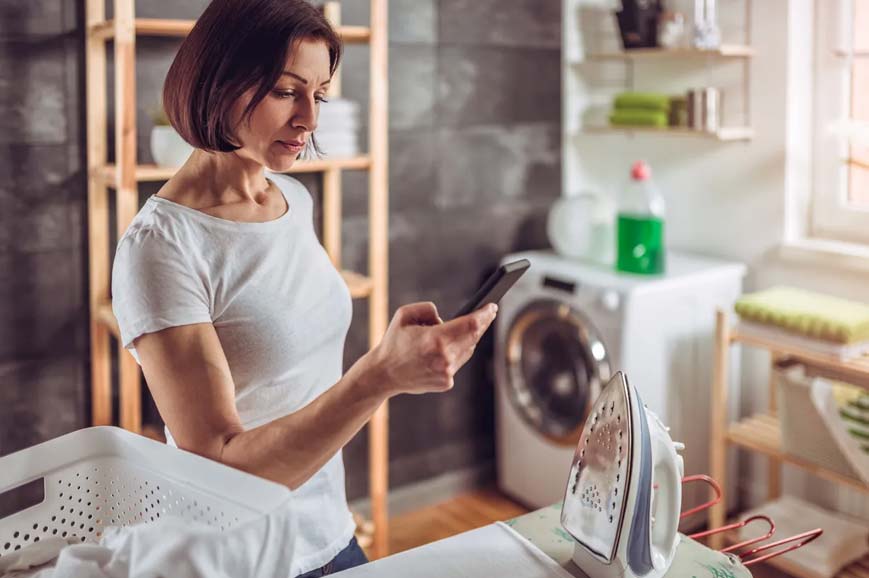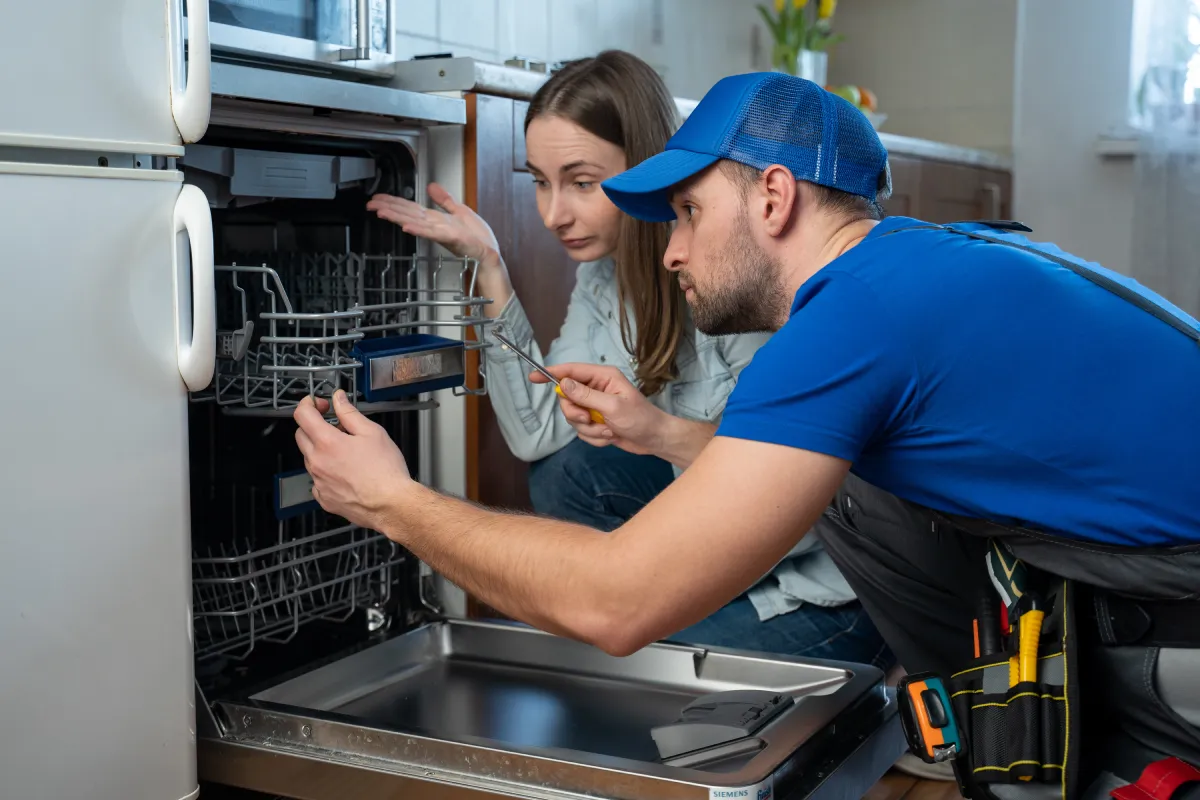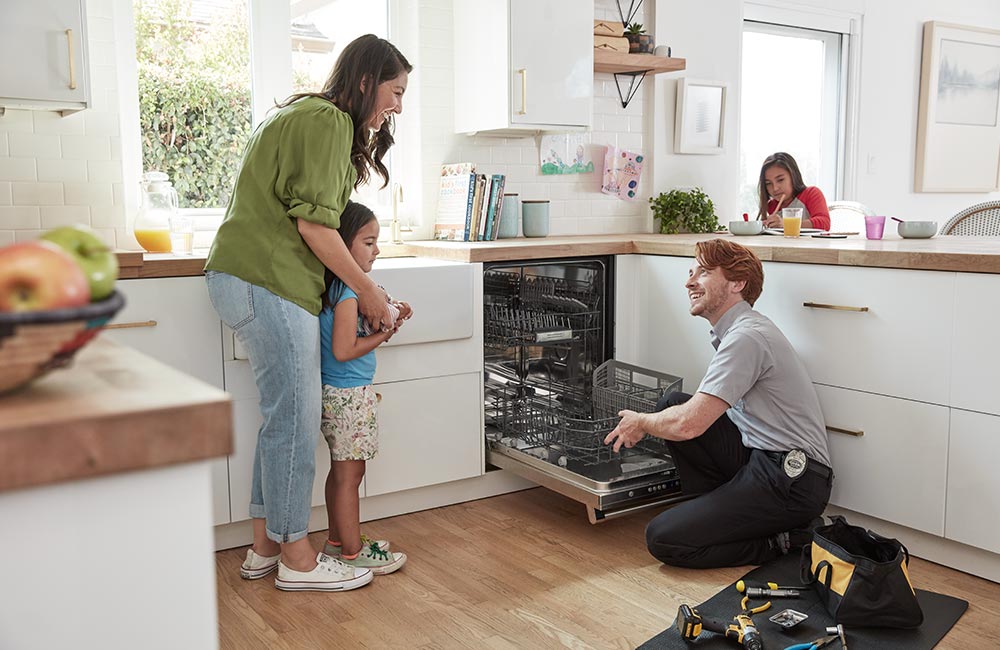How to Stop Your Washer from Shaking – Maytag Washing machine repair Dependable Refrigeration & Appliance Repair Service
How to Stop Your Washer from Shaking – Maytag Washing machine repair Dependable Refrigeration & Appliance Repair Service
Blog Article
The Ultimate Guide to Comprehending Appliance Repair in your home
When your refrigerator stops cooling down or your stove rejects to warm, it can really feel frustrating. Understanding home appliance repair work in your home can save you time and cash. You'll find out to identify signs and symptoms, use necessary devices, and adhere to a systematic troubleshooting procedure. Prior to you start, there are essential safety and security preventative measures you require to take into account. What are the most common issues, and how can you fix them? Let's discover the basics.
Common Device Issues and Their Signs
When your devices begin breaking down, it's vital to recognize the indications early on. Neglecting them can bring about larger issues and costly repairs. If your fridge isn't cooling down effectively, you may discover warm spots or condensation creating. This could show a falling short compressor or an obstructed vent.Your dishwashing machine might show problems with unclean meals or uncommon noises during cycles. If you hear grinding or clanking, it's time to investigate.A cleaning equipment that won't spin or drain pipes can leave you with soaked laundry, suggesting a clogged drain or a malfunctioning pump.Lastly, if your oven's temperature seems off or it takes forever to pre-heat, you could be taking care of a faulty thermostat. By staying alert to these signs and symptoms, you can deal with issues before they intensify right into major fixings.
Important Tools for Device Repair
When you're dealing with home appliance repair services in the house, having the right tools is crucial. Standard hand tools like screwdrivers and pliers will aid you disassemble and deal with numerous devices, while electrical screening gadgets ensure you're working safely with electrical wiring. Let's review what you need to get going on your repair work journey.
Basic Hand Tools
Having the right devices is crucial for reliable appliance repair service in your home. Start with a dependable screwdriver set, including both flathead and Phillips kinds, as screws prevail in appliance assembly. Pliers are also important; they aid with gripping, turning, and cutting wires or tiny elements. A pair of needle-nose pliers can get to tight places quickly. You'll need a great adjustable wrench for tightening up or loosening up nuts and screws. An utility knife comes in handy for reducing via packaging or insulation. Don't fail to remember a durable workbench or surface area to safely organize your tools and parts. With these fundamental hand devices, you'll be well-prepared to deal with most appliance fixings that come your means.
Electric Screening Tools
Alongside standard hand tools, electric testing tools play a vital duty in home appliance repair work. These devices help you diagnose electrical problems and warranty appliances operate safely. A multimeter is vital; it determines voltage, existing, and resistance, allowing you to pinpoint problems swiftly. A non-contact voltage tester is another must-have, allowing you spot real-time cords without making straight call, enhancing your security. Clamp meters are great for measuring present circulation in wires without detaching them, saving you time and effort. Furthermore, circuit testers can swiftly examine if outlets are operating correctly. By making use of these devices, you'll improve your troubleshooting process and boost your fixing skills, making appliance maintenance a lot easier.
Step-by-Step Overview to Diagnosing Home Appliance Issues
When your device breaks down, it can be frustrating, however detecting the issue does not need to be frustrating. You'll find out to identify common problems and apply effective troubleshooting techniques. Let's walk with the actions to get your device back in functioning order.
Common Device Problems

Fixing Techniques Explained

Repairing Significant Kitchen Area Devices: A Closer Look
Have you ever questioned exactly how to take on common concerns with your kitchen appliances? Repairing significant kitchen home appliances like refrigerators, ovens, and dish washers can be simpler than you assume. Start by recognizing the problem-- whether it's a refrigerator not cooling or an oven that will not heat. Commonly, a simple reset or checking the power source can address the issue.For fridges, clean the condenser coils and inspect the door seals. If your stove's not home heating, evaluate the burner and thermostat. Dish washers might just need a clean filter or a reset to obtain them back in activity. Always unplug the appliance before diving right into repair work to guarantee your safety.Don' t forget to seek advice from the customer guidebook for particular troubleshooting pointers associated with your design. With a little bit of persistence and the right devices, you can with confidence tackle home appliance repair work and save money at the same time!

Troubleshooting Laundry Equipments: Tips and Techniques
When your washing devices begin breaking down, it can feel overwhelming, however repairing them doesn't have to be a problem. Start by checking the power supply. Validate the appliance is plugged in and the outlet is functioning. Next, examine the door or cover button; a malfunctioning button can stop the maker from operating.For washers, if it's not rotating, examine for out of balance lots. Rearranging the garments could solve the issue. If your clothes dryer isn't home heating, tidy the dust filter and inspect the air vent for blockages.Listen for unusual noises; they can indicate an issue. If your home appliance is dripping, inspect the hose pipes for cracks or loose links. File any mistake codes presented on electronic displays, as they can direct you in identifying the issue. Seek advice from the customer manual for certain repairing pointers connected to your design.
Safety Preventative Measures to Take During Fixes
Prior to you begin any type of home appliance repair services, it's necessary to focus on security to avoid mishaps or injuries. Initially, unplug the home appliance or shut off the breaker to guarantee no power reaches it while you function. Usage shielded tools to decrease the danger of electrical shock. Wear safety and security goggles and gloves to protect yourself from sharp edges or debris (Dependable Refrigeration & Appliance Repair Service Dryer repair near me).Make specific your work space is neat and well-lit, so you can see what you're doing. Maintain youngsters and animals far from the location to stay clear of interruptions and prospective hazards. If you're handling gas appliances, be extra cautious; check for leakages prior to proceeding.Take your time, and don't hurry through fixings. If you feel unpredictable regarding any step, it's far better to pause and research than to guess. Following these preventative measures will assist develop a safer atmosphere for your do it yourself device repair work job
When to Call an Expert for Assistance
How do you understand if it's time to employ an expert for home appliance repair services? If you have actually tried standard troubleshooting without success, it's a clear indicator. If your device still will not start or shows unusual sounds after resetting it, do not think twice to look for specialist help.When you notice leaks, smoke, or melting smells, focus on security and call a pro immediately. These problems can bring about even more substantial damage or pose dangers to your home.Also, if your appliance is under warranty, getting in touch with a professional is often the most effective course. They can assure that repair services won't nullify your guarantee, conserving you cash in the long run.Finally, if you're unclear or uneasy with complex repair work, it's important to leave it to the professionals. Keep in mind, tackling complicated issues without the ideal proficiency can cause costly errors. Trust a specialist when in uncertainty!
Frequently Asked Questions
How Can I Stop Home Appliance Troubles in the Future?
To avoid device problems in the future, you need to execute normal maintenance, check for damage, tidy filters, and avoid overloading. Staying aggressive will assist extend their life-span and keep them running smoothly.
What Are the Many Usual DIY Home Appliance Repair Work Mistakes?
You could forget safety precautions, avoid fixing steps, or use inaccurate devices when attempting DIY home appliance fixings. Rushing the procedure or disregarding producer standards can cause more substantial concerns and expensive blunders. Remain individual and educated!
Just how Do I Know if a Component Requirements Replacement?
You can tell if a part requires substitute by looking for unusual noises, leaks, or irregular efficiency. If the appliance struggles to operate correctly or reveals noticeable damage, it's likely time for a substitute.
Can I Utilize Generic Components for Appliance Repair Works?
Yes, you can use common components for appliance fixings, however establish they work - Maytag Washing machine repair Dependable Refrigeration & Appliance Repair Service. Common parts might save you cash, yet they might influence performance or long life, so consider your alternatives thoroughly prior to deciding
What Guarantees Cover Appliance Repairs?
A lot of home appliance warranties cover repairs for making problems, yet they typically omit damages from misuse. Inspect your warranty terms meticulously, as some may call for making use of qualified professionals and original components for protection to remain legitimate.
Report this page